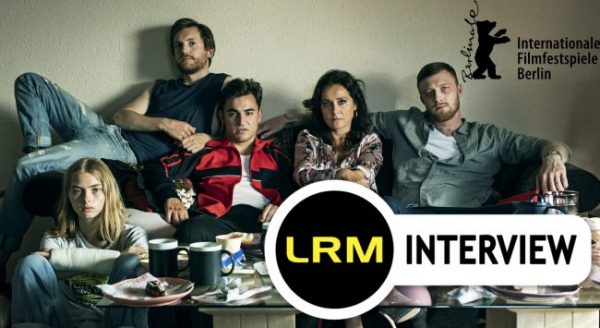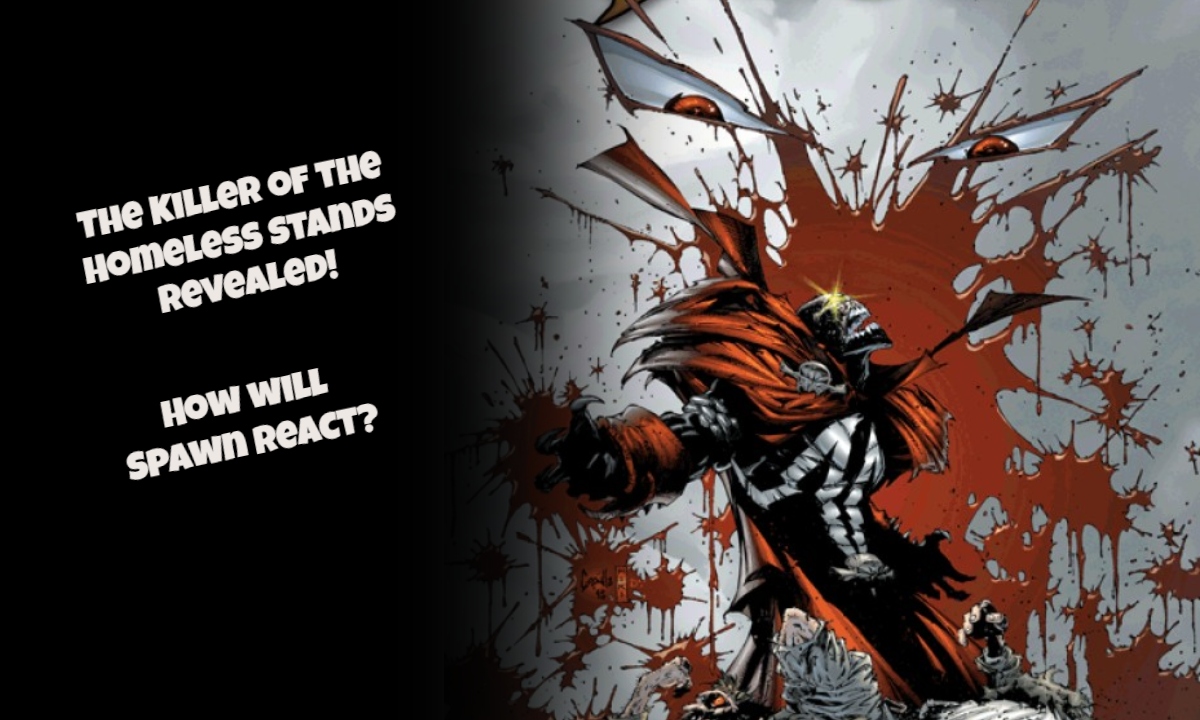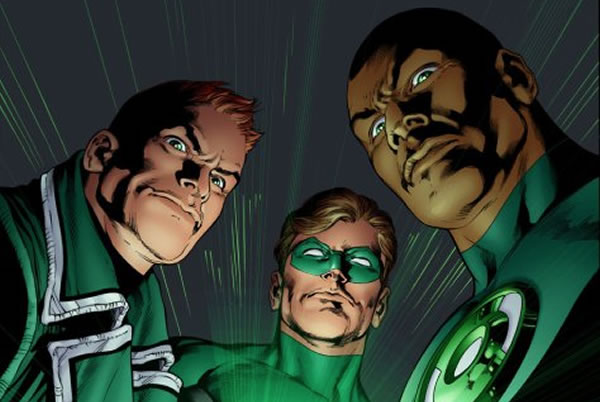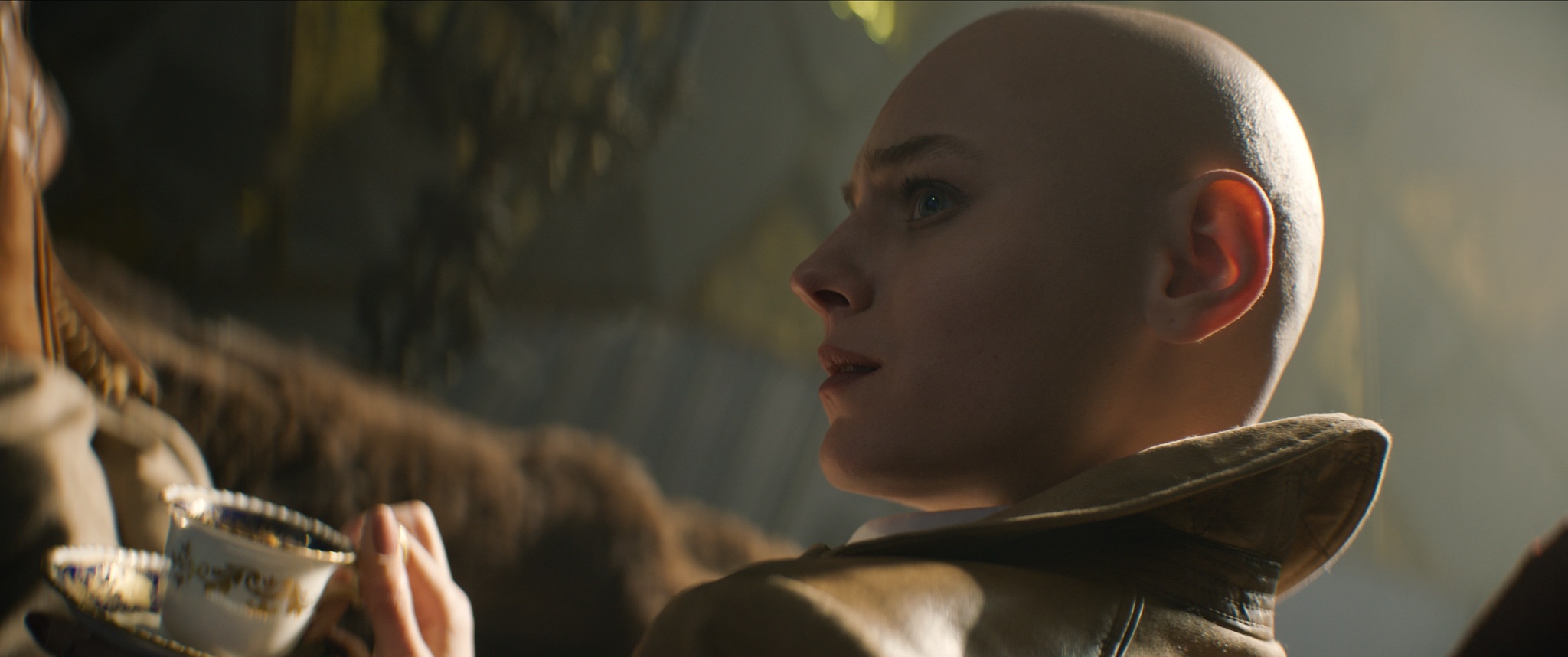Gritty Danish crime-drama, Wildland (Kod & Blod) made a big splash at its world debut at this year’s Berlinale Panorama program. The suspenseful film, which is director Jeanette Nordahl’s first feature, follows Ida, a newly orphaned teenager, who struggles to fit into her estranged aunt’s criminal family. Torn between her conscience and blood, the film questions loyalty in the face of intimidation and violence.
Big screen newcomer Sandra Gulberg Kampp is brilliant as Ida and so is the entire cast, for that matter. LRM had a chance to sit down with Nordahl and screenwriter, Ingeborg Topsøe to delve into the dark script and its conception. See what the talented duo had to say about family and crime, the cast, morality, cinematography and what they are working on next.
LRM: Thank you for joining me, Jeanette and Ingeborg. How has the film been received so far, here at Berlinale?
Jeanette Nordahl: I think it’s been really well received. I mean we’ve been having Q&As with all of our screenings and the audience reaction is really overwhelming, amazing, and very happy. We’ve had some great Q&A’s and we’ve got some pretty good reviews as well.
Ingeborg Topsoe: I think all of the screenings have been sold out and the two first theaters had between I think 600 and 700 people. So, I think that’s obviously wonderful that once you show the film for the first time, it’s had that impact.
LRM: How did you two come together and how this script was conceived. Were you both fascinated with a family mafia genre?
JN: Well, we were actually introduced by a mutual friend of ours and that must have been like seven, eight years back. Well, we have our 10 years anniversary very soon.
IT: We’ll have to think how to celebrate. It’s a big thing.
JN: The production designer on the film, Helle Lygum Justesen is a mutual friend of ours and we did a short film together, called Nylon, which is also about family relations and this kind of defended love, I guess you could say. I think we have a very strong mutual need to explore the family and the community dynamics but after Nylon, I think it just made sense to say, okay, now let’s just raise the stakes by putting in some crime, borrowing from the mafia genre to talk about the family.
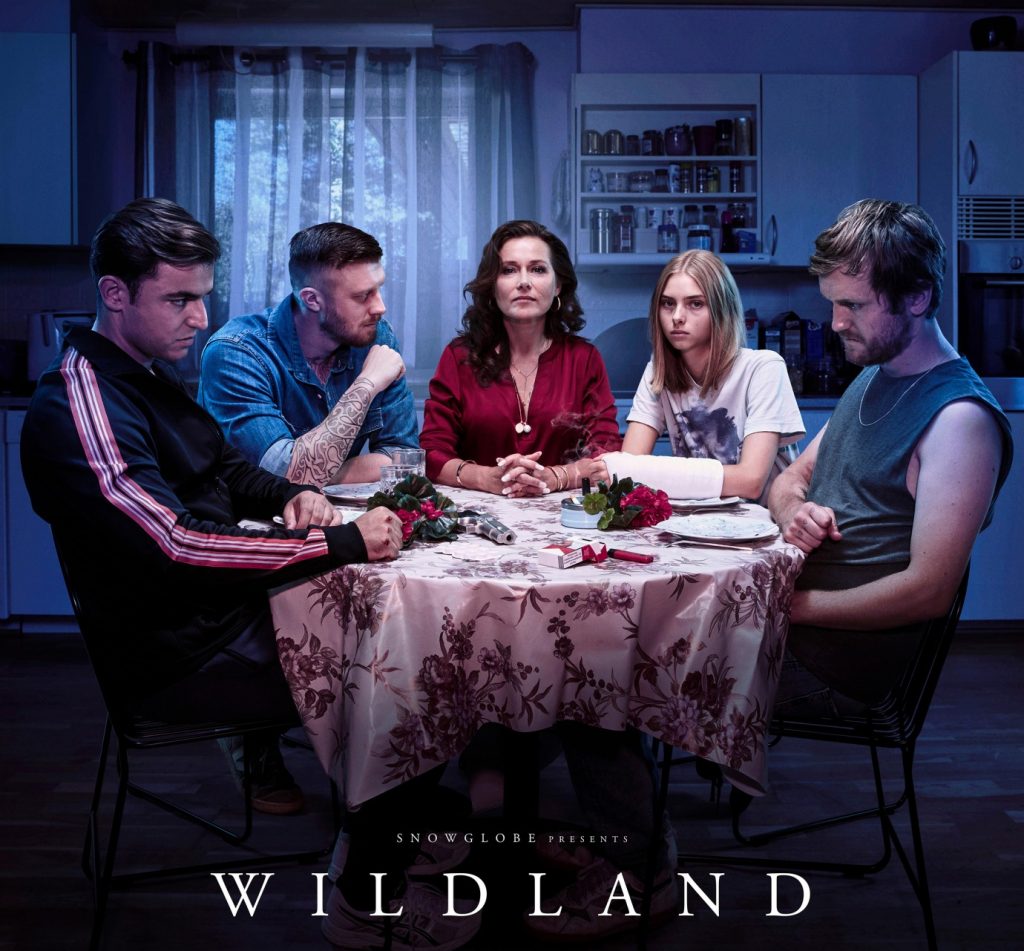
LRM: How do you 2 relate to this script? Is there any part that is reminiscent of any part of your own lives?
IT: I think I would say, for me, I related very much from Ida’s perspective, and the fact that she is a kid, who always has to listen. When she gets home, when she opens the door, she has to figure out what the mood is like. And I think I came a little bit from a home like that, where the atmosphere could change. But you know, my mom wasn’t killed in a car crash. I didn’t move in with my aunt, my family aren’t criminals. But I think, very much from sort of Ida’s perspective and the fact that she’s always really alert and trying to figure out when stuff can change. I think that’s sort of the biggest, direct connection to my life.
JN: I think this is great passion about needing to talk about the community, but I was pregnant while we started developing the film. And I think that whole thinking about family, what you’ve passed on and just motherhood in general, was something, obviously, I thought a lot about while being pregnant.
IT: But I think it was nice. We went out to dinner yesterday, but just with the actors and everything and it was like after a couple of drinks we all started talking about our moms and our childhood and then what happens. Hopefully, there’s so much in it that people can relate to. When is tenderness actually an assertion of power, that kind of thing. It just seems like a lot of people connect to that, some way, on their own. There is always a power struggle, the bigger family, a hierarchy and who’s listened to, and who isn’t.
CHECK OUT- No Time To Die Delayed, Pop Culture Events Affected By Coronavirus
LRM: I love that it was the matriarch leading the pack. Was there a particular reason you chose the mother to be the leading force of the family?
JN: I always find it’s more of a question of a why not than the why. I mean, obviously, I’m a female. I’m a woman and I don’t think I have the ability to take myself out of that. I can’t see what it is that I do as a woman compared to anyone else. I think it just makes sense using the matriarch, also because we talk about what is being passed on in a very physical way. The females being the one who carry the children, so on and so forth. And it meant a great deal both to the story but definitely also just portraying these female characters.
LRM: Can you talk a bit about the relationship the mother has with her boys and the boundaries she seems to cross intentionally or unintentionally.
IT: I think that’s definitely a breaking of barriers and it’s sort of, the boys aren’t really allowed to set their own boundaries. Do you know? And I think in that sense there is a kind of violation in the physicality because she doesn’t let them set their boundaries. So, we don’t have an incest story, but you know, I think there was that feeling of ‘you can be loving, but if someone doesn’t want you to touch them and then you do it anyway,’ that’s still breaking somebody’s boundaries. It’s an invasion of space, in a way.
LRM: And it’s a very powerful way to be manipulative and control, right?
IT: And I think like Jeanette is saying, the thing about the mom and the physicality and you know, without spoiling too much about the end, was just always a part of it. That’s sort of interconnection and, in a way, the fetus is also feeding off the mother and they come out and they’re still attached. That was always a lot of physical language within the family of how they talk with physicality, basically.
LRM: There was also an interesting dynamic between Anna and Ida, and again crossing fine lines and boundaries.
IT: Yeah. And we always talked about Anna as sort of, although she can seem sort of dim-witted when she’s sitting there talking, but I think was, for us, she was always kind of the moral of compass and the one who actually sees this family, and she wants to get David out of it and do something else. But we see that doesn’t go too well, but you know, I think she’s actually the one who has the clearer sense in the story. So, in that way there was a very specific connection between them and there’s just a more direct, real human relationship that isn’t about power. I think also with Jonas, with Mads, with her, there’s none of that. It’s just like, “Hey, are you okay?”, “are you fine?” It’s just more immediate.
LRM: Do you think that you’ll get any backlash regarding Anna smoking and drinking while pregnant in the film? Was that intentional?
JN: Yeah, I remember when we were doing the scene when she’s smoking. And she’s trying not to smoke it and she really wants the cigarette, but I remember thinking when we did it, and I talked a lot to Carla about it while we were doing this scene, the actress who plays Anna thinking, is this going to feel too much? And I think we just kind of agreed that she has so much sweetness, like this moral compass, she actually sees the truth. I mean she’s a very intelligent character. Despite that she smokes and all of these things. I think that made her more of a true character with the flaws she has as well. You know? In Denmark, we’re not going to get a backlash, I don’t think.
IT: But it’s just a tiny way of showing her struggle of wanting to do the right thing, but still just finding it difficult. I think it was just the little way of showing that she takes a puff and she’s like, no, no, no.
LRM: Where do you both stand on the moral question of the film? Do you agree that family is above everything?
JN: I think the family has an enormous power over us. I think we live in a world today where we make ourselves believe that the family doesn’t, that the individual is the most important and we have all the decisions in the world. But I do believe that what you’re born into actually matters and that the need to belong is a very strong need, and can make you do things that might be on the edge of what is morally right and what is wrong. The community is what creates what is wrong and what is right, and what is bad and what is good. So, I think it’s just a matter of fact to say that we’re taking this very seriously. That the community matters.
IT: And I think it’s also just now because you write, as well, for an American outlet. We did look at a lot of mafia films and obviously Godfather and all the rest and I think a lot of them, they, obviously, have social heritage as a theme. But it’s very much the focus of who’s the new head of the family, who is in charge. And there’s this, I would almost say slightly capitalistic worldview built into it. It’s about gaining money, gaining power and then maybe there’s a moral collapse, where I think our focus was sort of always a bit bigger… We are all born into something and trying to work within it and trying to do our best… Sidse, today, who plays Bodil, at the Q and A said this alluded to the backstory between her and Ida’s mom. They didn’t come from a great family, either. Bodil created a nice home. Her boys are doing well, in a sense. So, we didn’t have any goodies or baddies… Everyone sort of has baggage and they’re trying to do their best.
JN: There’s no villain in this story. They’re not fighting against outside enemies or each other, they’re fighting against something within themselves.
IT: Yeah. And even Ida, although she’s such a young character, she has this back story of her mom actually having turned her back to the family. But you see in these tiny glimpses, she wasn’t able to put anything particularly great or warm, or loving instead. So, I think she has that baggage with her when she makes the choice she makes.
LRM: There is a lot of talk about this film resembling Animal Kingdom. What do you think about that?
JN: I think Animal Kingdom is an amazing film. Based on a true story, it was one of the first films we saw that had a female head of family. A Matriarch. Beautiful. The comparisons, I enjoy. I also think we tried to go much more into the female characters, exploring that and taking the social heritage seriously, removing all outside enemies, and saying, “okay, it’s in the house where it’s the most dangerous”. I think we just explored that a bit further.
IT: But it is a great film and great performances. Again, it’s sort of the boys as the new head of the family. It has that Godfather structure, which is often the main focus. And we were just like “but Wait, nobody’s going to win. Nobody’s going to be in charge of anything. It’s just this thing… It just keeps feeding the individuals, the community but, at the same time, I don’t think we think you’re better off if you ostracize yourself from your community. It’s sort of all we have. Whether that’s your family or your friends, or the people you choose.
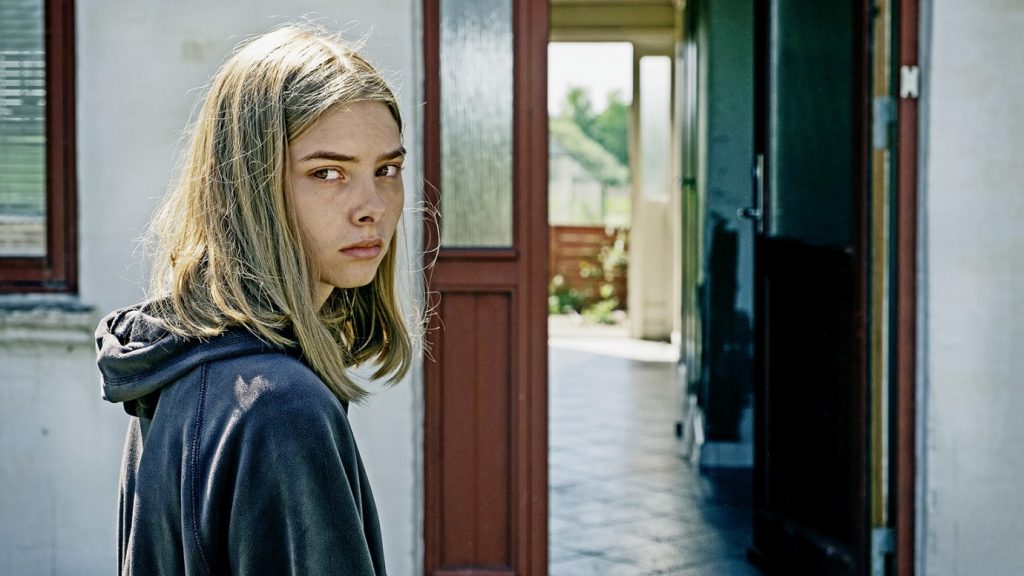
LRM: The film was beautifully shot. Who are some personal inspirations for you or whom do you look up to, as a filmmaker?
JN: Most Definitely. There are tons of amazing filmmakers. Just to talk about the film first, I have never used complete references. David Gallego, the cinematographer and I never said, “okay, this is the film we’re going to lean against and say”, it was more of saying, “how do we tell this story in details and what do we need to focus on?”. I have a great love for repetitions, a great love for these details. But I do think for me, personally, some of the directors who mattered the most to me, obviously, I’m a child of the Dogme wave in Denmark. The Celebration’s Lars von Trier, who I basically grew up with as a kid and who inspired me as a filmmaker. I’m a great fan of Michael Haneke. Great fan of Martin Scorsese. I go quite wide, I think. Lynne Ramsay, is amazing. A lot of her films mattered a lot to me.
LRM: The cast was wonderful. Sandra Gulberg Kampp, who played Ida was incredible. Was this the actress’s first film? Also, she strongly resembles Scarlett Johansson.
JN: I was so very lucky. Sandra was the first girls that I saw and you know when we were writing the script, of course we was very, very nervous that we wouldn’t be able to find Ida because she is a very difficult character. And I knew that I wanted someone who was 17, not having a 25-year-old play younger. So, of course I was super nervous about it, but she was actually the first one who showed up for the casting and when I saw her face, I was just struck by her like that. But I mean that’s Ida on the page. How can she be walking up the stairs like that.
IT: But I think it was because we had developed it for so long and we found that people liked the project, they liked the script, we got the funding and then I think we looked at each other and were like, “fuck, all that doesn’t matter if we don’t find the right actress”, because as Jeanette said she has to be 17, she’s very observant, there’s not a lot of action and she’s in every scene, obviously, apart from the end. And I think you just realize, okay, if Jeanette doesn’t find the right one, there is no film.
And also, because the other characters actually have more action, they couldn’t be allowed to be more interesting than the main actors. So, it had to be that face you just want to watch and think what’s going on.
JN: Instead of doing a vigorous scene, I had to just sit in front of the camera and look into the camera and I took her through emotions. I said, “Okay now you’re going to try feeling angry, try feeling all of these things because you’ve never really done anything before.” And I just remembered looking at all the nuances, like how she would just jump from one emotion to another without giving it a thought. It just comes intuitively to her so easily.
LRM: She’s an image actress.
Do you have any plans of writing another drama together?
IT: We have plans.
JN: I think we also going to focus on the community but I think we going to go a bit more hardcore. It’s actually another genre that’s been quite male dominated, but we don’t want to talk too much about it because we’re afraid to Jinx it because everything’s super early. Again, individual and community, but this time more enclosed, so you can’t escape it actually.
Wanna join the LRM Online conversation on Discord? Join our server by CLICKING HERE!
—–
Have you checked out LRM Online’s official podcast feed yet The LRM Online Podcast Network? This includes our flagship podcast Los Fanboys, our premiere podcast Breaking Geek Radio: The Podcast, and our morning show LRMornings. Check it out by listening below. It’s also available on all your favorite podcast apps!

 FOR FANBOYS, BY FANBOYS
Have you checked out LRM Online’s official podcasts and videos on The Genreverse Podcast Network? Available on YouTube and all your favorite podcast apps, This multimedia empire includes The Daily CoG, Breaking Geek Radio: The Podcast, GeekScholars Movie News, Anime-Versal Review Podcast, and our Star Wars dedicated podcast The Cantina. Check it out by listening on all your favorite podcast apps, or watching on YouTube!
Subscribe on: Apple Podcasts | Spotify | SoundCloud | Stitcher | Google Play
FOR FANBOYS, BY FANBOYS
Have you checked out LRM Online’s official podcasts and videos on The Genreverse Podcast Network? Available on YouTube and all your favorite podcast apps, This multimedia empire includes The Daily CoG, Breaking Geek Radio: The Podcast, GeekScholars Movie News, Anime-Versal Review Podcast, and our Star Wars dedicated podcast The Cantina. Check it out by listening on all your favorite podcast apps, or watching on YouTube!
Subscribe on: Apple Podcasts | Spotify | SoundCloud | Stitcher | Google Play

